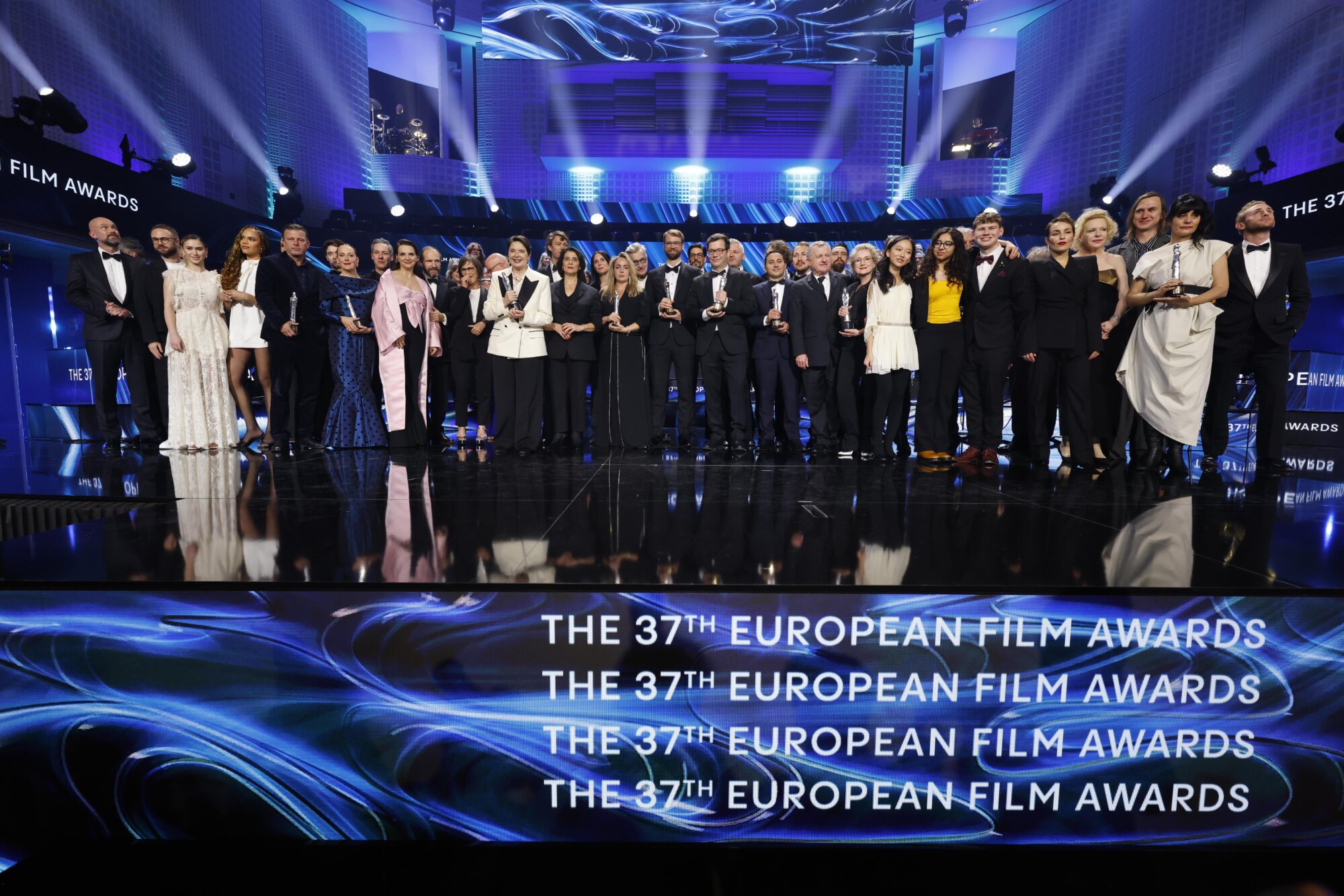Statutes of the European Film Academy
Statutes of the European Film Academy

1. Name and Headquarters
1.1 The name of the Association is the “European Film Academy”.
1.2 Subsequent to its registration in the Register of Associations, the Association will add to its name the words “registered Association” in the abbreviated form “e.V.”
1.3 The Association has its headquarters in Berlin.
1.4 In the future the Association will set up associate offices in other European cities.
2. Aims of the Association
2.1 The aims of the Association are:
– to promote the European film as an essential component of European culture;
– to stimulate, strengthen, and foster the conversation and exchange of ideas and experiences between European filmmakers;
– to promote and educate young European film talent;
– to produce publications on European cinema.
2.2 In order to attain the above-mentioned aims of the Association:
– public symposiums concerning cultural, political, environmental, social and economic topics within the audio-visual medium will be organised and realised;
– master classes under the direction of members of the European Film Academy e.V. will be organised and offered to young people active in the audio-visual branch;
– books and videos documenting the activities organised by the European Film Academy e.V. will be produced and distributed to film and multimedia schools as well as to institutions, free of charge for didactic purposes; and
– the Awards of the European Film Academy will be granted together with the European Film Academy Productions gGmbH.
2.3 The Association’s obligation is in particular to compile the regulations for the selection and awarding of the Awards of the European Film Academy in a number of different categories.
2.4 The Association exclusively and directly pursues non-profit making purposes in the sense of the section of the Fiscal Code entitled „Purposes eligible for tax concessions“. The Associaton is a non profit-making organisation; it does not, primarily, pursue any financial purposes of its own.
2.5 Funds of the Association may only be used for purposes which are in accordance with its statutes. The members may not obtain any benefits from the funds of the Association. No person may be favoured by expenditure which is alien to the purpose of the Association or by disproportionately large emoluments.
2.6 The Association may not employ its financial resources either directly or indirectly for the support or promotion of political parties.
2.7 The Association is neutral in terms of party politics and advocates the basic principles of religious and ideological tolerance.
2.8 In the pursuit of its statutory objectives, in particular in the context of the presentation of the Awards of the European Film Academy, the Association may co-operate with other natural or legal persons and may, where appropriate, participate in them if these, too, are charitable bodies or bodies corporate under public law.
3. Membership
3.1 The founder members of the Association are European film personalities who supported the first four European Film Awards and have rendered considerable service to the cause of European film.
3.2 Film professionals can either apply for membership or be recommended by other members. The decision to invite a new member will be taken by the Board which after having informed the new member on the election and after having received his/her/their written agreement issues in writing the invitation to become a voting member.
3.3 Voting membership will be offered to European film professionals whose work is recognised throughout the world and who declare their willingness to actively support the aims of the Association and to persons whose professional activities are connected with the film industry and whose support serves the interests of the Association, such as cultural politicians, film historians, film distributors etc.
3.4 In exceptional cases an invitation may be issued to become an honorary member. Honorary membership will be offered to European film professionals of merit who cannot actively support the aims of the Association, or non-European film professionals whose lifeworks have inspired and influenced European cinema. Honorary members have no voting rights.
3.5 There shall be a yearly membership fee the amount of which is to be fixed by the Board by issuing a membership fee regulation. The membership fee is used to finance the work of the Association in accordance with § 2. In addition, the members may be asked to make a donation for a project to be decided on a yearly basis.
3.6 Membership can be cancelled by:
a) Resignation
b) Exclusion
c) Death
d) Serious ground
Resignation shall be explained in writing to the Board.
It will take effect from the moment when the Board receives this written explanation. An exclusion can be effected through the unanimous decision of the Board after considering the arguments of the member concerned, if there are serious grounds for this.
It shall be considered as serious ground if the annual membership fee has not been paid in three consecutive years and despite reminders, meaning that membership expires automatically, without requiring a board decision and/or any further notice.
The Board is entitled to decide on exceptions in justified cases for individual members or individual countries for certain periods of time.
3.7 Members can exercise their membership rights only if they are not in default with their membership fee payments.
4. Executive Bodies
The executive bodies of the Association are the General Members’ Assembly and the Board. The highest executive body is the General Members’ Assembly. Further executive bodies can
be created by decision of the General Members’ Assembly.
5.President
The President of the Association shall be elected by the General Members’ Assembly. He/she/they shall be elected by the members upon the proposal of the Board for a period of 5 years. Re-election is admissible for an unlimited number of times.
6. The Board
6.1 The Board shall consist of
a) the Chair
b) two Deputy Chairs
c) sixteen further members
d) In accordance with § 26 BGB the Board consists of the Chair
e) and the two Deputy Chair. Each of them shall be entitled to represent the
Association individually.
6.2 For the passing of a resolution § 28 section 1 in conjunction with § 32 BGB applies with the proviso that in the event of a tied vote the Chair shall have the casting vote.
6.3 The Association is represented juridically and extra-juridically by the Chair or each of the Deputy Chairs. The Deputy Chair are instructed internally to make use of his/her/their individual powers of representation only in the event of incapacity on the part of the Chair. The director may be authorised to carry out individual legal actions.
6.4 The Board and the Chair shall be elected for a period of two years. They remain in office until the statutory appointment of the next Board.
Re-election is admissible for 2 further periods of office. Following a total of 3 periods of office, re-election for the next period of office is no longer admissible. If the member has missed an election, he/she/they may, in accordance with the 1st and 2nd sentences, be elected once more for a total of 3 periods of office, and must then again miss a period.
6.5 In order to ensure equal regional participation of all members in the work of the Board, the Board can decide that regional groups are formed for individual countries and regions in respect of election of the Board. In such a case, only the respective members of the regional groups are eligible for election to office.
6.6 The Chair shall receive a monthly expense allowance, the amount of which has to be fixed for each term of office according to the economic situation of the association.
7. The Director
The management of the Association is the responsibility of the Director, who shall be appointed by the Board.
8. Convocation of the General Members’ Assembly
The General Members’ Assembly shall be convoked by the Board, whenever the interests of the Association require, but at least once a year.
The Assembly shall also be convoked if at least 10% of members or the majority of the Board members make such a written request, stating the agenda.
9. Procedure for Convocation
9.1 The General Members’ Assembly shall be convoked in written or text form (including by electronic means) by the Chair observing a period of notice of four weeks.
The period of notice shall begin on the day the invitations are sent out to the last known e-mail address of the member.
9.2 The convocation of the statutory Assembly must set out the subject on the agenda. This shall include the following points:
a) Board’s Report
b) Treasurer’s Report and Auditor’s Report
c) Passing of resolutions laid before the meeting
d) Formal endorsement of the Board and
e) Elections, if and when these are required.
9.3 The General Members’ Assembly shall be led by the Chair
10. Decision-making Powers
10.1 Every lawfully convoked General Members’ Assembly has the power to pass resolutions.
10.2 The presence of two-thirds of the members of the Association is required in order to pass a resolution to dissolve the Association.
11. Passing of Resolutions/ Elections
11.1 Voting shall take place by means of a show of hands. On the request of at least five of those present, voting shall take place in writing and in secret.
11.2 Resolutions shall be passed by a majority of the members present. Abstentions and invalid votes shall not be taken into consideration.
11.3 A majority of two-thirds of the members present is required for a change to the Articles or the Aims of the Association.
11.4 Resolutions and elections by the General Assembly may also be passed by circular. In this case, the formal wording of the resolution shall be sent to all voting members of the Association. Their votes shall be submitted to the Board within a period of six weeks. For both the submission of the formal wording of the resolution and the vote to be taken on the item, it applies that they may be effected either in written or in text form.
Resolutions and elections adopted by circular shall require a simple majority of the votes cast unless other special provisions of the Statutes prescribe a different majority. The votes cast shall also in this case be decisive for the determination of the necessary majority.
If more than one person stands in a vote, the person or persons with the relative majority of votes shall be elected.
The results of the voting by circular shall be immediately communicated by the Board to all members of the Association.
12. Auditor
The General Members’ Assembly shall elect each year at least two auditors and two deputy auditors who shall not be members of the Board. The auditors shall examine factually and calculatively the cash accounts of the Association, including the account books and receipts, at least once each financial year. The auditors shall present an audit report to the Annual General Meeting and shall request the endorsement of the board.
13. Decisions of the Assembly
13.1 Minutes of the decisions made by the Assembly shall be kept.
13.2 These minutes shall be signed by the Chair of the Assembly.
13.3 Every member shall be entitled to inspect the minutes.
14. Dissolution of the Association
14.1 The Association can be dissolved by a decision of the General Members’ Assembly in accordance with § 10 of the Articles of Association.
14.2 The Board shall carry out the winding-up procedures.
14.3 Following the dissolution of the Association, or the cessation of its tax-privileges, its assets may only be used for tax-privileged purposes. The assets will be transferred to the Federal State of Berlin for tax-privileged purposes, in agreement with the competent revenue-office.
15
The German version of the Articles of the Association is the sole statutorily valid version. The legal provisions of the Federal Republic of Germany are complementarily applicable.








